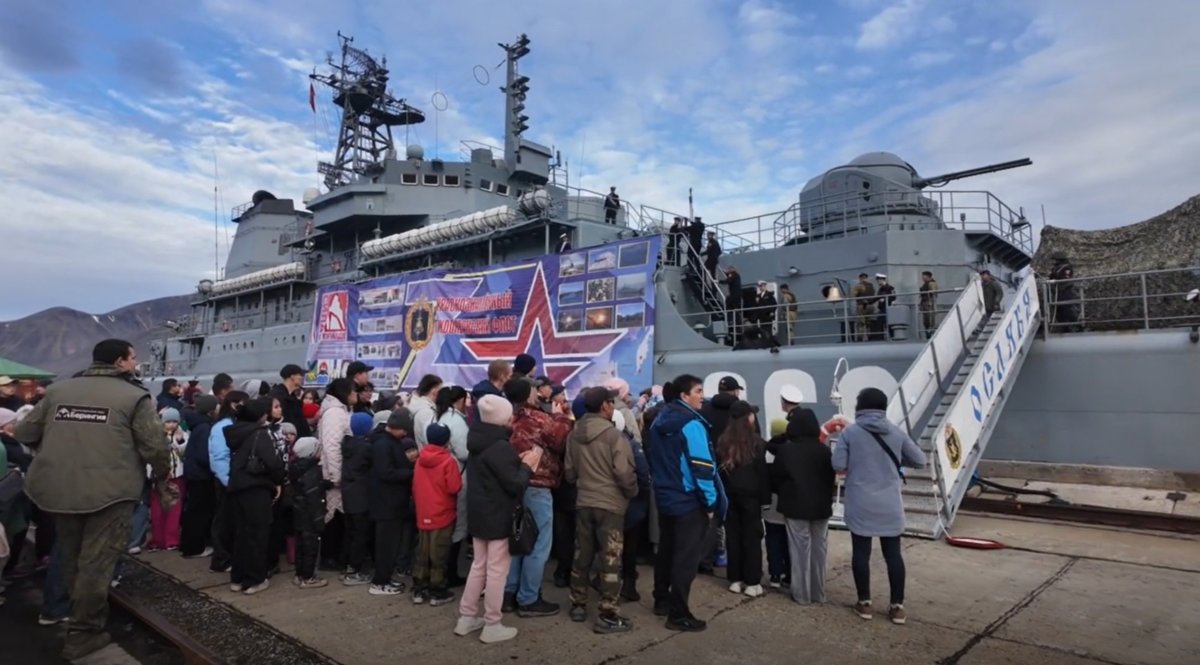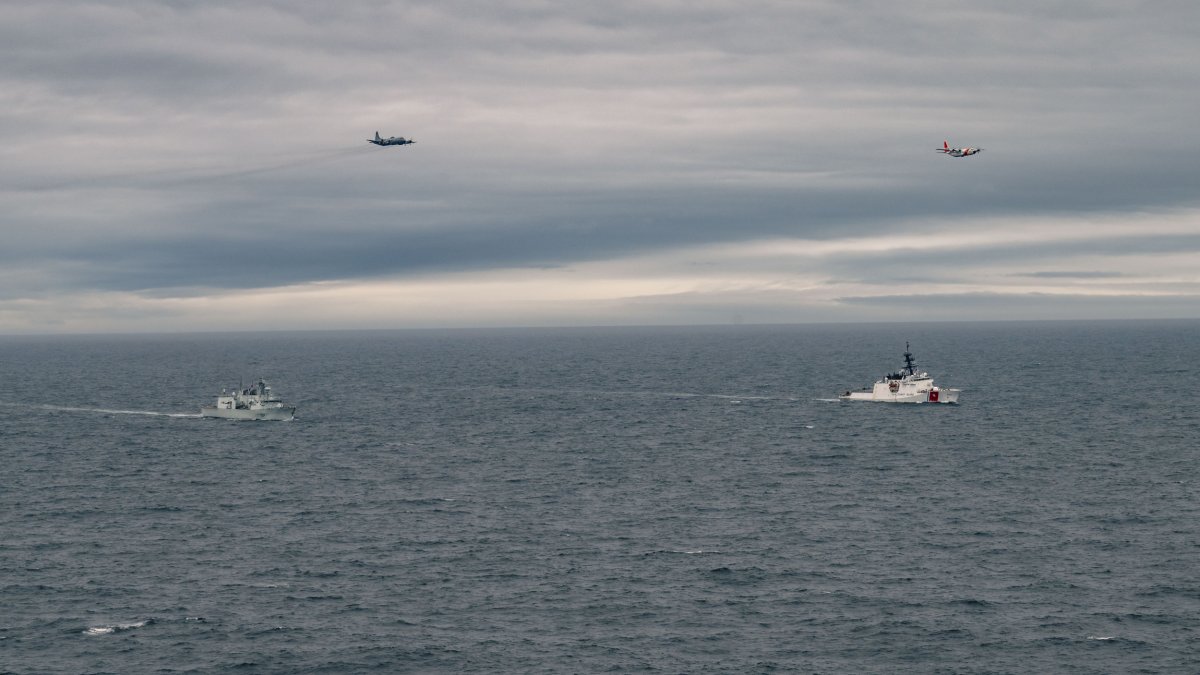Russia deployed warships to the Far East region near Alaska for a “patriotic” mission, while U.S. and Canadian aircraft and vessels carried out an operation in nearby waters.
The Russian naval deployment is part of the military’s effort to highlight what it described as “heroism” during the special military operation, Moscow’s term for the invasion of Ukraine.
Meanwhile, the United States-Canada operation in the Bering Sea aimed to demonstrate the resolve of the two allies in deterring and defeating adversaries that threaten their homelands in the Arctic.
Why It Matters
Despite the ongoing war in Ukraine, Russia maintains a strong military presence in both the Far East and the Arctic, where it recently conducted a joint naval drill and patrol with China and operates dozens of bases along its long northern coastline bordering the Arctic Ocean.
The presence of Russian naval vessels in the Far East, aimed at promoting national unity, follows President Vladimir Putin‘s trip to Alaska to meet U.S. President Donald Trump on August 15. During the meeting, the leaders discussed the war in Ukraine but concluded without a ceasefire deal.
Washington and Ottawa are close allies in defending North America, having formed the North American Aerospace Defense Command (NORAD), which regularly intercepts Russian military aircraft near allied airspace and monitors Chinese vessels in the Arctic.
What To Know
Citing the Russian Pacific Fleet, the state-run Tass news agency reported on Wednesday that two of the fleet’s naval vessels arrived at Provideniya in the Chukotka Autonomous Okrug in the Far East as part of a patriotic mission code-named “Strength in Truth-2025.”

Russia’s Pacific Fleet
The straight-line distance between Provideniya and Alaska’s mainland is approximately 170 miles, separated by the Bering Strait.
The mission is part of a Russian Defense Ministry project aimed at preserving the so-called “historical truth” of World War II, strengthening national values and the foundations of Russian statehood, and highlighting the Pacific Fleet’s “heroism” during the war in Ukraine.
According to the report, the vessels would display an unspecified number and type of “Western-made weapons” captured on the battlefield during the special military operation.
The vessels departed Vladivostok, a city in the Far East near China and North Korea, on August 1 and reached Provideniya after sailing more than 4,000 miles. After this stop, they will transit south to the Kuril Islands before concluding the mission back at Vladivostok.
Meanwhile, the U.S. Alaskan Command announced on Thursday that it began an operation on Monday with the U.S. Coast Guard Arctic District and the Canadian Armed Forces in the Bering Sea, which lies between Alaska and Russia south of the Bering Strait.
Released photos show the U.S. Coast Guard and the Canadian Armed Forces each deploying an aircraft and a vessel. The operation aimed to deepen cooperation and coordination between the Pentagon, the Department of Homeland Security, and the Canadian military.

Master Corporal William Gosse/Canadian Armed Forces
What People Are Saying
Lieutenant General Case Cunningham, commander of the U.S. Alaskan NORAD Region, the Alaskan Command, and the Eleventh Air Force, said in a press release on Thursday: “These partnerships ensure the U.S.A. and Canada are ready to defend against and decisively defeat any potential threat to North America.”
Regarding negotiations with Ukraine, Kremlin spokesperson Dmitry Peskov said at a press briefing on Friday: “We can’t say that expert activities are in full swing. Unfortunately, this is not the case. Still, we remain interested in and ready for such talks…All of our positions have been clarified.”
What Happens Next
It remains to be seen how the U.S., Canada, and Russia will strengthen their military presence in the North Pacific and Arctic waters amid the contest for regional dominance.